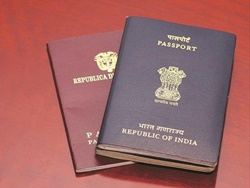
Fincash » Types of Banks in India » IMPS Charges in 2025 by Major Banks
Table of Contents
- ✅ Key Highlights of IMPS
- How IMPS Works
- IMPS vs NEFT vs RTGS vs UPI: A Comparison Table
- Channels to Use IMPS
- IMPS Charges by Major Banks (2025 Update)
- Why IMPS is Important in India’s Digital Economy
- IMPS Transaction Methods Explained
- Step-by-Step: How to Send Money via IMPS
- 🛡 Is IMPS Safe?
- IMPS for International Transfers?
- 🔄 Can IMPS Be Reversed?
- Who Can Use IMPS?
- Growth of IMPS in India
- FAQs on IMPS
- Conclusion
What is IMPS? Complete Guide to Immediate Payment Service (2025 Update)
IMPS, or Immediate Payment Service, is a real-time, 24x7 electronic fund transfer system in India that allows users to send and receive money instantly. Launched by the National Payments Corporation of India (NPCI), IMPS is a crucial part of India’s digital payment infrastructure, Offering safe, fast, and accessible banking services.
✅ Key Highlights of IMPS
| Feature | Details |
|---|---|
| Full Form | Immediate Payment Service |
| Launched By | NPCI (National Payments Corporation of India) |
| Availability | 24x7x365 (including weekends and holidays) |
| Transfer Type | Real-time, Instant |
| Channels Supported | Mobile, Internet Banking, ATM, SMS, Bank Branch |
| Max Transfer | Limit ₹5 lakh (as per RBI guidelines, may vary by bank) |
| Minimum Transfer | Amount ₹1 (for most banks) |
How IMPS Works
IMPS enables users to transfer funds between two bank accounts instantly using different methods such as:
- Mobile Number + MMID (Mobile Money Identifier)
- Bank Account Number + IFSC Code
- Aadhaar Number (if linked to a bank account)
- UPI ID (in some cases via IMPS rail)
The service works round-the-clock, even on Sundays and bank holidays, making it far more versatile than traditional systems like NEFT and RTGS.
IMPS vs NEFT vs RTGS vs UPI: A Comparison Table
| Feature | IMPS | NEFT | RTGS | UPI |
|---|---|---|---|---|
| Speed | Instant | 30 minutes–2 hours | Real-time | Instant |
| Availability | 24x7 | Limited hours (now extended to 24x7) | Business hours (and now 24x7) | 24x7 |
| Minimum Amount | ₹1 | ₹1 | ₹2 lakh | ₹1 |
| Maximum Limit | ₹5 lakh (may vary) | No limit | No upper limit | ₹1 lakh to ₹5 lakh (varies by app) |
| Used For | Any payments | General bank transfers | High-value transactions | Peer-to-peer & merchant payments |
Talk to our investment specialist
Channels to Use IMPS
You can use IMPS via:
- Mobile Banking App
- Internet Banking
- ATMs
- SMS Banking (less common today)
- Bank Branches
IMPS Charges by Major Banks (2025 Update)
IMPS charges are generally low and declining due to competition from UPI and government regulation. Still, some banks charge nominal fees based on the transaction amount:
| Bank Name | Minimum IMPS Charges | Maximum IMPS Charges |
|---|---|---|
| State Bank of India | Nil up to ₹1,000 | ₹20 + GST |
| HDFC Bank | ₹3.50 + GST | ₹15 + GST |
| ICICI Bank | ₹2.5 + GST | ₹15 + GST |
| Axis Bank | ₹2.5 + GST | ₹10 + GST |
| Kotak Bank | ₹2.5 + GST | ₹15 + GST |
| Canara Bank | Nil up to ₹1,000 | ₹20 + GST |
| RBL Bank | ₹5 + GST | ₹15 + GST |
| IndusInd Bank | ₹2.50 + GST | ₹15 + GST |
| Union Bank | ₹5 + GST | ₹15 + GST |
| Bank of Baroda | ₹2.5 + GST | ₹25 + GST |
| Central Bank of India | ₹3.00 + GST | ₹20 + GST |
| Punjab and National Bank | Nil up to ₹1,000 | ₹12 + GST |
| Indian Overseas Bank | ₹2.5 + GST | ₹15 + GST |
| Bandhan Bank | ₹5 + GST | ₹15 + GST |
Note: Many banks, especially private ones, offer zero IMPS charges via mobile apps to encourage digital usage.
Why IMPS is Important in India’s Digital Economy
- Bridges the gap between urban and rural banking.
- Supports Financial Inclusion by allowing small-value, anytime transfers.
- Acts as the backbone for digital wallets and some UPI use cases.
- Enables real-time settlements for e-commerce, bill payments, and salary disbursals.
IMPS Transaction Methods Explained
1. Mobile Number + MMID
Ideal for smartphone users. MMID is a 7-digit number provided by the bank.
2. Bank Account + IFSC
The most common method, used via net banking or mobile apps.
3. Aadhaar-based Transfers
Less used now, but supported for Aadhaar-linked bank accounts.
Step-by-Step: How to Send Money via IMPS
Let’s take a mobile banking example:
- Log in to your mobile banking app.
- Go to the “IMPS Transfer” section.
- Choose transfer method (Account/IFSC or Mobile/MMID).
- Enter beneficiary details and amount.
- Authenticate using OTP/MPIN.
Done! Money is instantly transferred.
🛡 Is IMPS Safe?
Yes. IMPS uses secure channels and authentication (MPIN, OTP, etc.) for every transaction. Moreover, it’s governed by NPCI and RBI, ensuring robust compliance and fraud prevention protocols.
IMPS for International Transfers?
IMPS is strictly a domestic fund transfer system. For international remittances, use SWIFT, Western Union, or Nostro/Vostro account-based bank transfers.
🔄 Can IMPS Be Reversed?
Only in rare cases. If the money is sent to the wrong account and the receiver agrees, a reversal is possible. Otherwise, you must contact your bank immediately for a resolution.
Who Can Use IMPS?
Any Indian citizen with a bank account and mobile number registered with the bank. Available across all major banks in India including SBI, HDFC, ICICI, Axis Bank, and cooperative banks.
Growth of IMPS in India
As per NPCI data:
- IMPS processed over 480 million transactions in a single month in 2024.
- Total value crossed ₹5 lakh crore in monthly volumes.
- The adoption rate is growing steadily in semi-urban and rural areas.
FAQs on IMPS
1. What is IMPS in simple words?
A: IMPS or Immediate Payment Service allows real-time fund transfers between bank accounts 24x7.
2. Is IMPS available on Sunday?
A: Yes, IMPS works every day, including Sundays and national holidays.
3. What is the IMPS transaction limit?
A: Up to ₹5 lakh per transaction, but may vary based on bank policy.
4. Can IMPS be used without internet?
A: Yes, via SMS banking or USSD (in some banks), though usage is limited today.
5. Which is faster: IMPS or NEFT?
A: IMPS is faster. It is real-time, while NEFT processes in batches.
Conclusion
IMPS is one of the pillars of India’s digital payment revolution. It provides instant money transfer, even on weekends, with nominal charges. Whether you’re a student paying rent, a freelancer receiving payments, or a business paying salaries — IMPS is fast, reliable, and secure.
If you’re still using cash or cheques — it’s time to switch!
All efforts have been made to ensure the information provided here is accurate. However, no guarantees are made regarding correctness of data. Please verify with scheme information document before making any investment.










